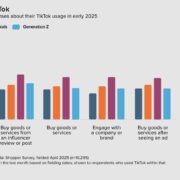Transformed workforce in a transformed workplace: Impact on hospitality marketing

The tourism and hospitality sector experienced seismic shifts during and post-pandemic, and this changed the way the industry works, manages resources and engages with customers and markets. These changes, accelerated by technology, societal shifts and a global pandemic, influence and reshape the expectations of visitors and customers, and the way companies do business. More importantly, they are transforming workplaces and the workforce. These changes are not just operational—they fundamentally reshape how marketing is approached in the sector.
Key trends will influence strategies and directions, perhaps even in radical ways:
Personalization and hypertargeting
People no longer want to be anonymous statistics. They demand personalized experiences and expect brands to cater to their specific preferences, from customized room settings to personalized recommendations for dining, entertainment and activities, and even planning for them. Consumers, particularly Millennials and Gen Zs, are shifting away from material purchases and gravitating toward experiences.
Tech and touch fusion
High touch is embedded in the hospitality industry DNA, but its relaxed approach to technology use was jolted by the sudden shift of markets to digital mode. Digital services, like virtual concierge systems, artificial intelligence-powered chatbots and contactless check-ins are now the norms, and there is no turning back.
Content creation and storytelling
When everything seems to be about technology and platforms, authenticity is the currency of modern marketing. In a world where consumers are presented with almost countless options, they want to be engaged by compelling, authentic and engaging stories. Everyone competes for attention.
Sustainability and social responsibility
People care deeply about how businesses impact the world. They veer toward products, services and brands that align with their values, whether it’s environmental sustainability, diversity and inclusion, or community engagement.
Omnichannel marketing and seamless customer journeys
The marketing journey now spans multiple touch points—from guests researching online, to engaging with social media, booking through apps, to in-stay experiences and post-stay follow-ups. All these channels need presence and visibility.
Data privacy and ethical marketing
Data are needed to personalize services and improve operations, but customers are increasingly resistant to sharing their information. Data and statistics cannot just be gathered without being transparent about its use to the customers and getting them to agree to data sharing.
Workforce has changed
These trends are reshaping how hotels and resorts engage with customers, position their brands and stay competitive. What makes the transformed workplace complex is because the workforce has also changed – and they are defining and redefining how the workplace should evolve.
In a period of our history where five generations – the Silent Generation, Boomers, Gen Xers, Millennials or Gen Ys and the Gen Zs or Zoomers – are working side by side, the diversity has profound implications for how businesses function internally and how we engage with the marketplace. Innovation is a competitive advantage, and this thrives in environments where diverse perspectives are encouraged. Today’s imperative is to shift from hiring and rewarding employees for “cultural fit,” which often implies conformity, to “cultural add,” where the focus is on how a person’s unique qualities can enrich the existing culture.
This diversity, once harnessed well, can lead to more creative and culturally relevant marketing campaigns. They can help align our strategies with the evolving expectations of today’s consumers whose age groups they represent. A tech-savvy and diverse workforce can help hotels tap into the creativity and tech fluency of their employees to tailor guest experiences and help integrate technology seamlessly with genuine human interaction. Younger employees, in particular, often have an intuitive understanding of digital platforms and social media trends, and they can help translate perspectives and experiences into fresh, compelling content that resonates with diverse audiences.
Beyond profit
Marketing teams can leverage their employees’ passion for sustainability to create campaigns that highlight eco-friendly initiatives, waste reduction efforts and ethical practices within the hotel industry. This aligns with the values of many younger employees in the workforce who want to be part of companies that stand for something beyond profit and are socially responsible companies.
In selling the brand or the company to the public, the best ambassadors are its employees. The success of companies – properties, hotels/resorts and the tourism/hospitality industry as a whole – depends not only on the strategies laid out today but, on the passion, and commitment the employees bring to executing them. It is not just an exercise in numbers and charts — it’s about adapting to new realities, seizing new opportunities and ensuring that excellence is the hallmark in everything organizations do.
Underlying that excellence is the importance of human touch that fosters trust, empathy and a sense of belonging. Building and maintaining customer relationships is more important than ever, but it must extend to creating strong sense of community that will enable businesses to weather the challenges of a technology-driven market and emerge stronger and more resilient.
Simply put, it’s about shaping the future of hospitality organizations, or ensuring that there will be one.


















